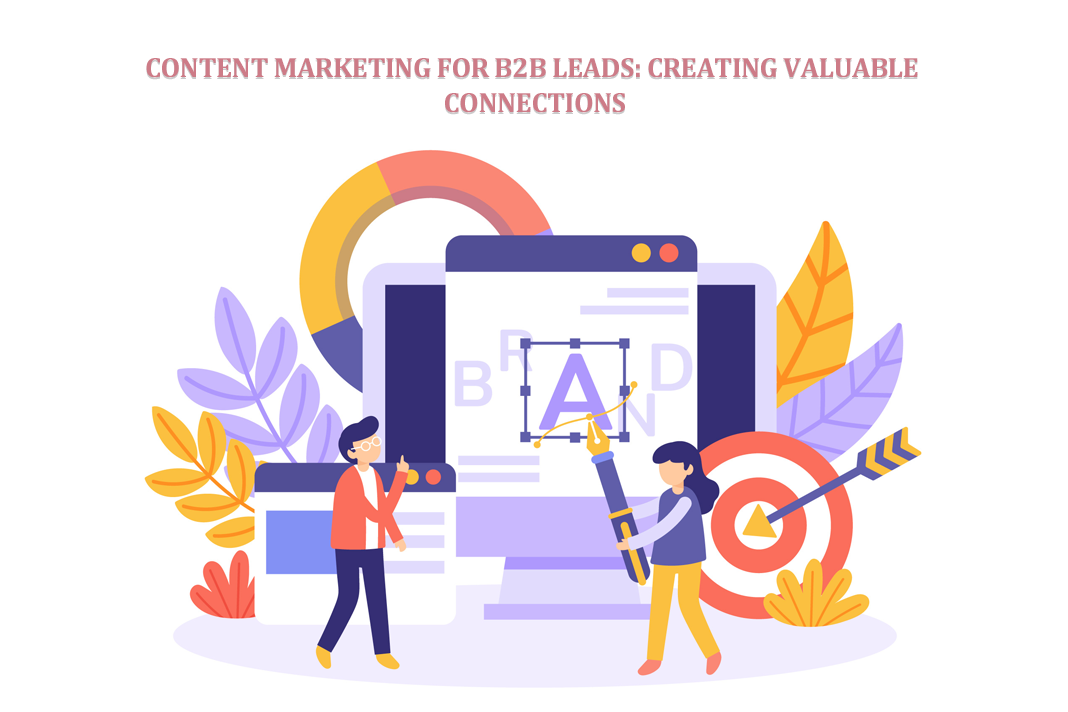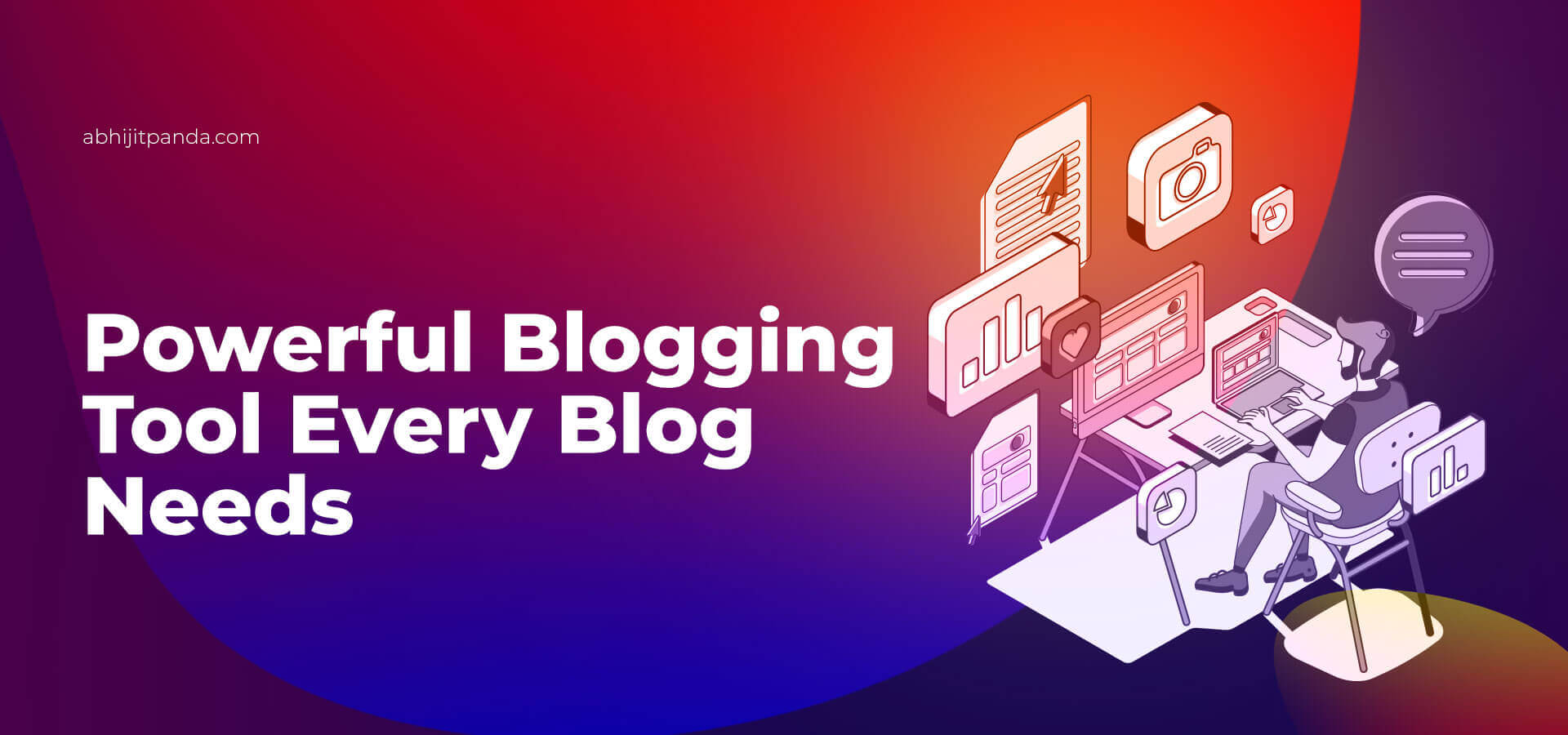 Content Marketing for B2B Leads: Creating Valuable Connections
Content Marketing for B2B Leads: Creating Valuable Connections
Why is content marketing crucial to generating B2B leads? There is a lot of rivalry for consumers’ attention and business in this digital age. What are some ways to make your brand more noticeable?
One answer is content marketing, which helps generate B2B leads by establishing credibility and providing helpful information. The goal is to generate leads, turn them into loyal customers, and drive engagement by creating and distributing relevant, business-focused content.
Unlike more conventional forms of advertising, content marketing focuses on providing solutions to real issues. In addition to enhancing connections, this strategy establishes your company as a frontrunner in the industry.
Business-to-business (B2B) organizations aim to connect with decision-makers and provide them with insights, expertise, and solutions. Let’s examine the role of Content Marketing for B2B Leads: how effective content marketing may improve lead generation and assist in creating these important relationships.
Understanding Your B2B Audience
For content marketing to be effective, you must first understand your target demographic. Knowing what CEOs, managers, and procurement teams need is essential for business-to-business enterprises.
What difficulties do they encounter? Tell me about their company objectives. Do your homework if you want your content to connect with its intended audience.
Buyer personas are an excellent tool for this. They specify your ideal consumers’ demographics, occupations, and problems. Think about the three phases of the buyer’s journey: awareness, contemplation, and decision.
Several kinds of materials are required at each step to address specific problems. Maintaining a current and trustworthy brand requires constant audience engagement and education.
Lead generation and meaningful relationships are propelled when content meets the demands of your audience.
Crafting Compelling and Relevant Content
Top-notch content is the foundation of any prosperous B2B content marketing campaign. It’s not enough to merely produce content; what matters is material that offers practical solutions to issues and tangible value.
Infographics, white papers, case studies, and blogs are some of the most popular forms for business-to-business audiences. To be credible, every component needs to be thoroughly researched and supported by statistics.
Engaging material addresses the problems experienced by the intended readers. Some industries place a higher value on articles about enhancing cybersecurity, while others place a higher value on ideas for optimizing supply chains.
When your content provides relevant answers, people are likelier to interact with your business and trust you. Regularly publishing new, smart, and targeted content leads to nurturing and audience retention.
Leveraging SEO to Amplify Content Reach
If you want people to notice your content, search engine optimization (SEO) is necessary. Search engine optimization (SEO) enhances a website’s presence in search engine results to attract more visitors. This necessitates the use of industry-specific keywords by B2B marketers.
Using long-tail keywords like “best CRM software for small businesses” may increase the number of reliable leads you receive. If you want your material to be found more efficiently, you should also optimize the meta descriptions, headers, and alternative texts.
Adding backlinks from reliable sources can increase your website’s authority and make it simpler for potential prospects to locate you. Your lead-generation efforts will be amplified when you prioritize SEO and make it easy for companies to access your helpful content.
Using Social Media to Distribute Content
B2B firms may benefit just as much, if not more, from social media as B2C enterprises. You may publish your material and communicate with other companies on LinkedIn, Twitter, and even Facebook platforms.
For instance, you may reach professionals on LinkedIn by publishing articles, posting thought leadership, and advertising directly. Social media can increase your content’s visibility and attract more targeted viewers.
Replying to comments, participating in industry debates, and offering insights can also help build trust and credibility with followers.
Find out what kinds of content are performing well with analytics tools and adjust your approach appropriately. Social media may be an effective tool for generating leads and maintaining relationships when used regularly.
Role of Email Marketing in B2B Content Strategy
One of the best ways to nurture B2B leads is through email marketing. Personalized emails that provide helpful information can convert customers into leads.
Emailing helpful resources like industry research, product manuals, or even WooCommerce product video plugins shows you know what you’re talking about and keeps people interested.
You must segment your email list. Consider segmenting recipients according to interests, industry, or firm size to improve message personalization. By sending timely, relevant information, automated email marketing may help move prospects more efficiently through the sales funnel.
You may improve your business-to-business lead-generation efforts and cultivate solid partnerships through personalized and relevant email marketing.
Building Trust Through Thought Leadership
Building your reputation as an industry expert is a great strategy for generating business-to-business leads. Webinars, in-depth essays, and white papers that demonstrate mastery of a subject are examples of thought leadership material.
Customers will have more faith in your company when you consistently deliver fresh, cutting-edge products and services.
Working together might give your thought leadership initiatives an extra push. You may boost your reputation by teaming up with other experts in your field to host webinars or write papers together.
Leadership via thought is not about making a sale but rather about providing value through education. With time, this tactic establishes you as a trustworthy associate, encouraging companies to select your services rather than your rivals.
Measuring and Optimizing Content Performance
Measuring the performance of your content is just as crucial as creating high-quality content. Metrics that reveal how effectively your content connects with your audience include website traffic, bounce rates, time on page, and conversions.
To monitor these KPIs, you may use technologies such as Google Analytics and CRM solutions. If a blog article receives a large number of views but no comments or shares, it might be time to rethink its organization or add a stronger CTA.
Examine performance statistics often to ensure your content strategy drives B2B leads.
Integrating Video Content for Enhanced Engagement
Creating and sharing videos has revolutionized business-to-business marketing. Videos are great for breaking down complicated concepts because they are exciting and straightforward.
Videos are great for demonstrating products, conducting case studies, and providing tutorials. Embedding movies on your website or sharing them on social media is a great way to increase engagement.
For instance, a brief explanation film showcasing the operational efficiencies provided may pique prospective customers’ curiosity.
Videos let people connect with your business on a more personal level. Incorporating a video content marketing strategy for your business is very important. When integrated into a content strategy, video provides a dynamic layer that enhances lead conversion rates by complementing other forms.
Conclusion
Content marketing is an approach that goes beyond mere strategy; it serves as a conduit that links your company to highly valued B2B prospects. Building enduring connections requires knowledge of your audience, creating pertinent content, and utilizing technologies such as search engine optimization (SEO), email, and social media. Performance metrics guarantee your efforts pay off while your strategy is enriched by thought leadership and video content.








Leave a Reply